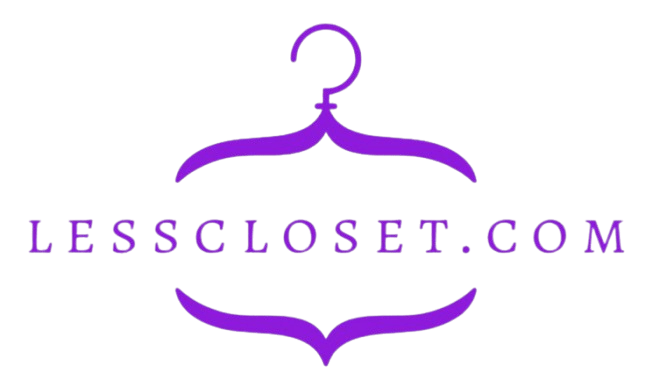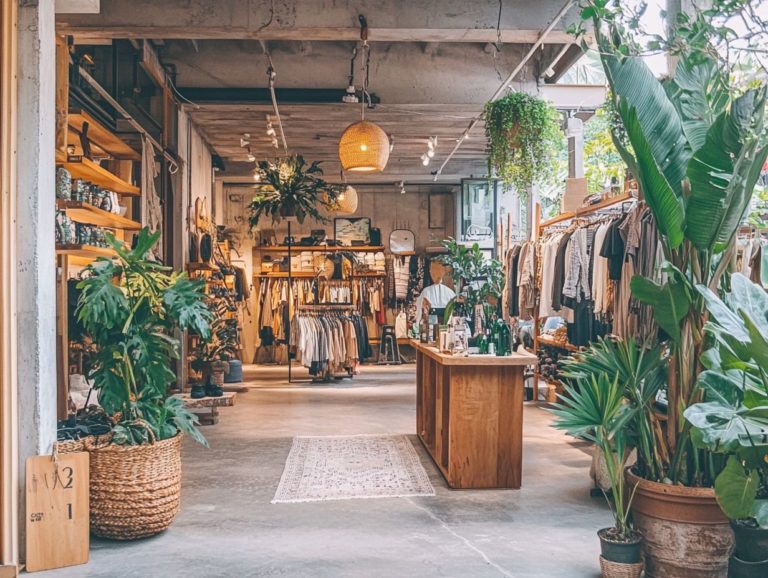Sustainable Fashion Certifications Explained
In a world increasingly centered on environmental and social responsibility, sustainability certifications in the clothing industry have become essential benchmarks for discerning consumers and forward-thinking brands.
These certifications guide your purchasing decisions and ensure that the fashion industry is taking meaningful steps toward sustainability. This article delves into the significance of these certifications, exploring the various types available and examining the criteria used for their evaluation, including responsible production practices and environmental impact.
You ll discover the benefits and challenges surrounding these sustainable practices, along with practical tips to support certified brands. Join in as you navigate the complexities of sustainable fashion certifications and their far-reaching impact on both the industry and the planet, including fair labor practices and community empowerment.
Contents
- Key Takeaways:
- The Importance of Sustainable Fashion Certifications
- Explore the Different Sustainability Certifications in Fashion!
- Criteria for Sustainable Fashion Certifications
- Benefits of Using Certified Sustainable Fashion
- Challenges and Controversies Surrounding Certifications
- How to Identify and Support Certified Sustainable Fashion Brands
- Frequently Asked Questions
- What are sustainable fashion certifications?
- Why are sustainable fashion certifications important?
- How do brands obtain sustainable fashion certifications?
- What are some examples of sustainable fashion certifications?
- Can a brand have more than one sustainable fashion certification?
- Are sustainable fashion certifications only for clothing brands?
Key Takeaways:
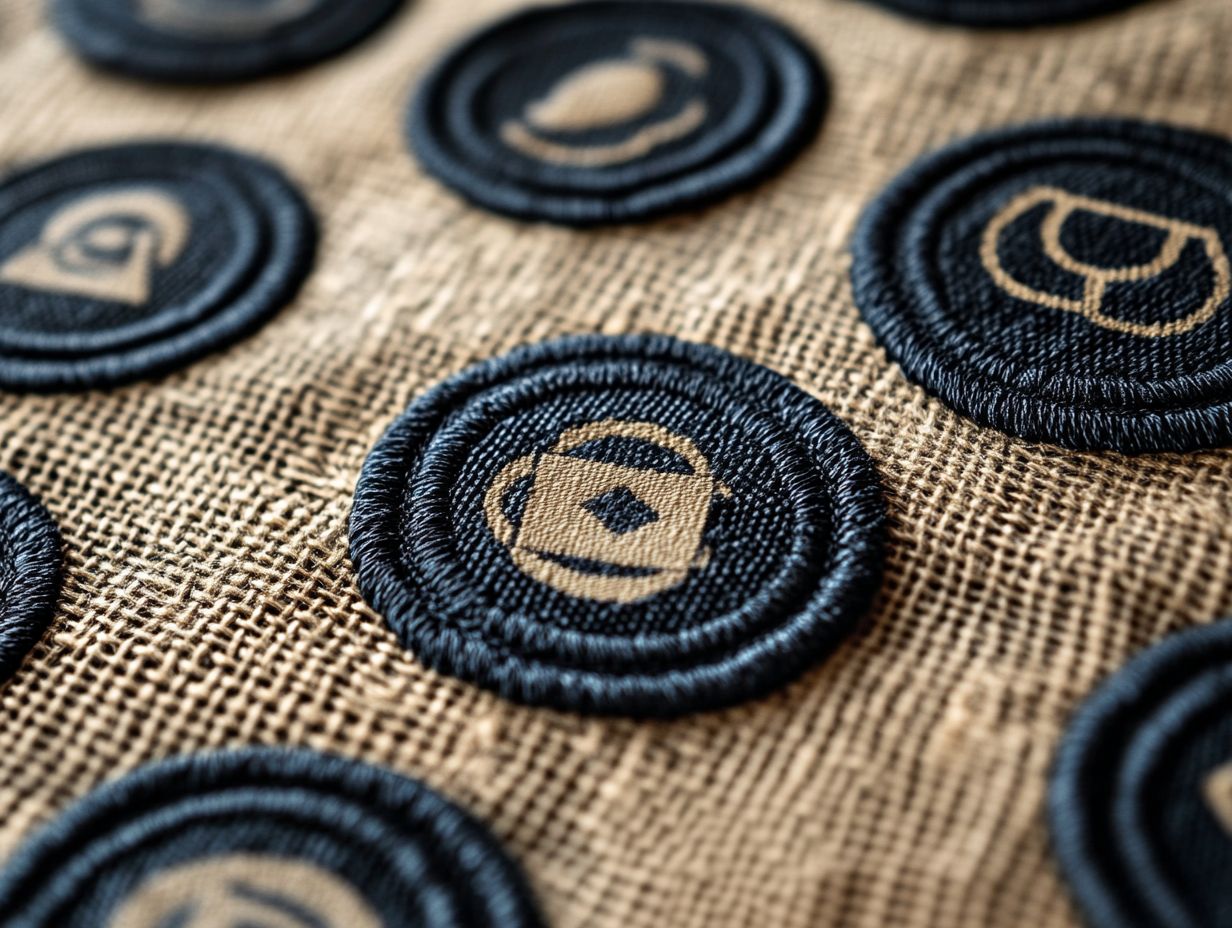
- Certifications are crucial for the fashion industry to promote sustainability and accountability.
- There are various types of certifications that consider different factors, such as environmental and social impact.
- Certified sustainable fashion offers benefits for the environment and society, but challenges and controversies still exist.
The Importance of Sustainable Fashion Certifications
Sustainable fashion certifications hold a vital place in the clothing industry, championing responsible production practices and establishing benchmarks for environmental impact and fair labor standards. These certifications empower you to make smart choices, ensuring that the brands you support align with sustainable practices that benefit both the environment and garment workers.
The significance of these certifications is profound; they foster transparency within the textile supply chain and uplift communities through ethical recognition and acknowledgment of responsible practices.
Why Certifications Matter for the Fashion Industry
Certifications are crucial for ensuring sustainability in fashion, serving as a guiding framework for brands to embrace responsible production practices and uphold fair labor standards within their textile supply chains.
By following these standards, you build trust with customers and cultivate consumer loyalty. Certifications such as Fair Trade, Global Organic Textile Standard (GOTS), and B Corp are becoming increasingly important, especially as consumers gravitate toward brands that prioritize ethical and environmentally sound practices.
When you see a brand proudly displaying the Fair Trade certification, it signals a commitment to fair wages and safe working conditions, which can directly impact your purchasing decisions.
Shoppers like you are more inclined to choose products that bear such esteemed certifications, reinforcing the idea that ethical practices in fashion not only bolster brand reputation but also pave the way for a more sustainable future.
Explore the Different Sustainability Certifications in Fashion!
You ll find a rich tapestry of sustainability certifications within the fashion industry, each meticulously crafted to address specific criteria surrounding environmental stewardship, social accountability, and ethical practices.
Certifications such as Better Cotton, Bluesign , and the Global Organic Textile Standard (GOTS) provide unique frameworks for assessing sustainable materials and responsible production methods. Others, like Fair Trade and Oeko-Tex certification, emphasize fair labor practices and guarantee that textile products are safe for both consumers and the environment.
Act now to support sustainable brands and join the movement for a greener planet!
Overview of Different Certifications
Different sustainability certificates serve unique purposes within the fashion industry, reflecting specific values and practices that resonate with your ethical and environmental standards.
Take the Global Organic Textile Standard (GOTS), for example. It guarantees that textiles are crafted from organic fibers and enforces stringent social and environmental criteria throughout the entire supply chain. The Fair Trade certificate focuses on ensuring fair wages and safe working conditions for farmers and workers, solidifying a commitment to ethical labor practices.
Both certificates are vital in promoting environmentally friendly production. They play a significant role in shaping your consumer choices by elevating awareness about sustainable options. When brands prominently display these certificates, they convey their dedication to sustainability, giving you the power to make informed decisions that support ethical practices.
Criteria for Sustainable Fashion Certifications
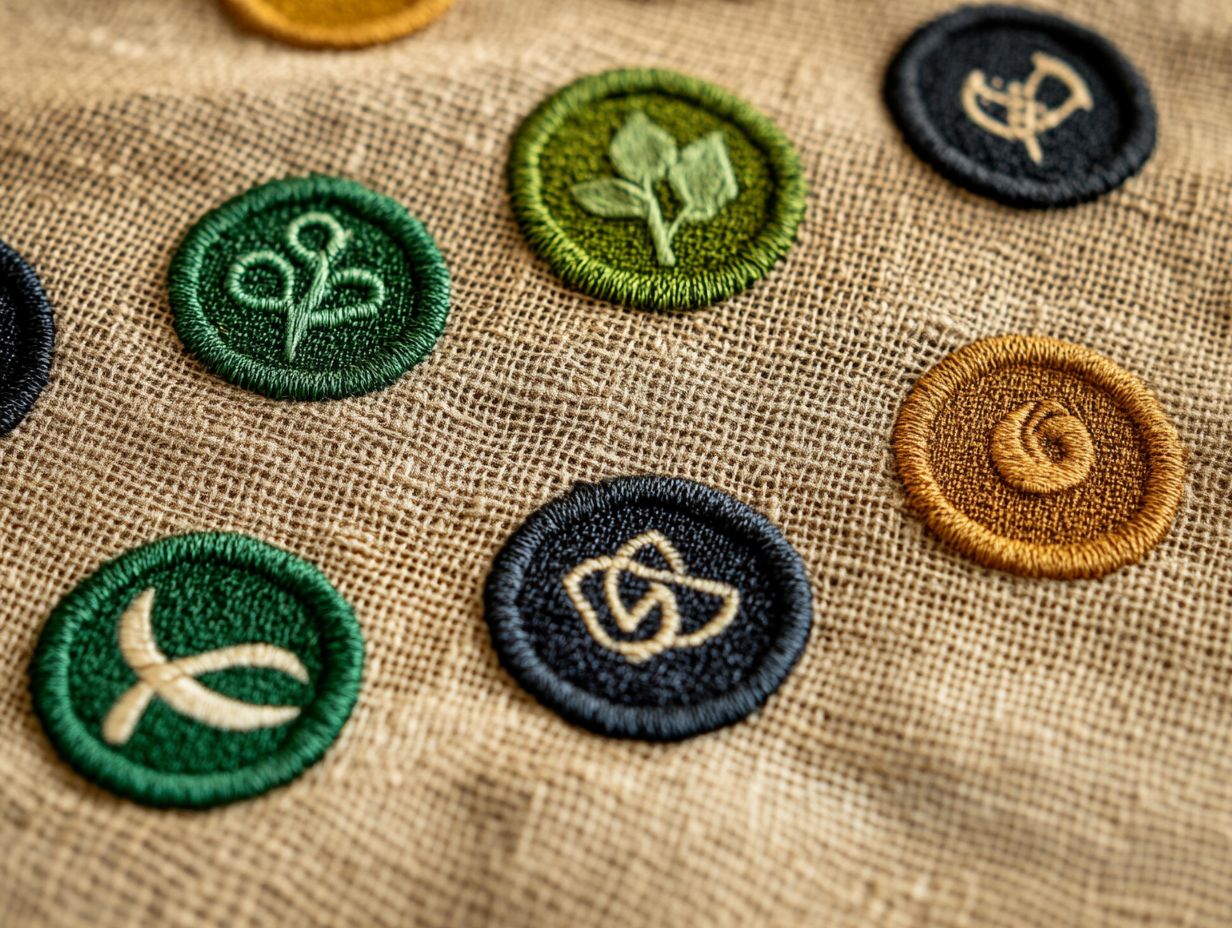
The criteria for sustainable fashion certificates cover a broad spectrum of environmental and social parameters. These are thoughtfully crafted to ensure that you, as a brand, adhere to responsible practices throughout your supply chain.
These criteria assess various aspects, including the use of sustainable materials, the implementation of fair labor practices, and compliance with animal welfare standards. This framework promotes transparency and fosters accountability within the industry, guiding you towards more ethical and sustainable choices.
What Factors are Considered in Certification Processes
Certification processes for sustainable fashion evaluate a multitude of factors, including environmental criteria, social accountability, and compliance with labor standards. This ensures that brands not only meet but also surpass minimum sustainability expectations.
These evaluations also emphasize the use of eco-friendly materials, ensuring that fabrics and accessories are sourced responsibly with a minimal environmental footprint. Sustainable design practices undergo thorough scrutiny, examining the entire lifecycle of products from creation to disposal. This approach highlights staying true to environmental values while encouraging brands to embrace innovative methods that reduce waste and promote recycling.
When brands commit to these rigorous guidelines, they significantly elevate their chances of obtaining recognized certifications, fostering consumer trust and contributing meaningfully to the fashion industry’s transformation toward sustainability.
Benefits of Using Certified Sustainable Fashion
By choosing certified sustainable fashion, you unlock a wealth of benefits that not only minimize your environmental footprint but also support social enterprises and empower communities.
As a discerning consumer, you naturally gravitate towards brands that showcase ethical certificates. You understand the significance of making informed choices that resonate with your values.
Your purchasing decisions contribute to eco-intelligent design practices, fostering a more sustainable future.
Environmental and Social Impact
The environmental and social impact of sustainable fashion is truly profound. It encompasses not just the reduction of waste and pollution, but also the promotion of fair labor practices and community empowerment.
This holistic approach is essential for tackling the pressing challenges posed by the fast fashion industry, known for its harmful effects on both ecosystems and vulnerable communities. Initiatives like recycling programs and the use of organic materials can significantly reduce the carbon footprint associated with apparel manufacturing.
Brands like Patagonia are leading the charge by incorporating recycled materials and committing to donate a percentage of sales to environmental causes. Similarly, Everlane emphasizes transparency in its supply chain, ensuring fair wages for workers.
These efforts do not merely address environmental degradation; they also cultivate social equity, highlighting the crucial importance of ethical consumption in our modern world.
Join the movement towards sustainable fashion! Explore certified sustainable brands today and be part of the change!
Challenges and Controversies Surrounding Certifications
Despite their significance, sustainability certifications face numerous challenges and controversies that raise critical questions about their effectiveness in ensuring compliance and accountability within the clothing industry.
Criticism and Limitations of Certification Systems
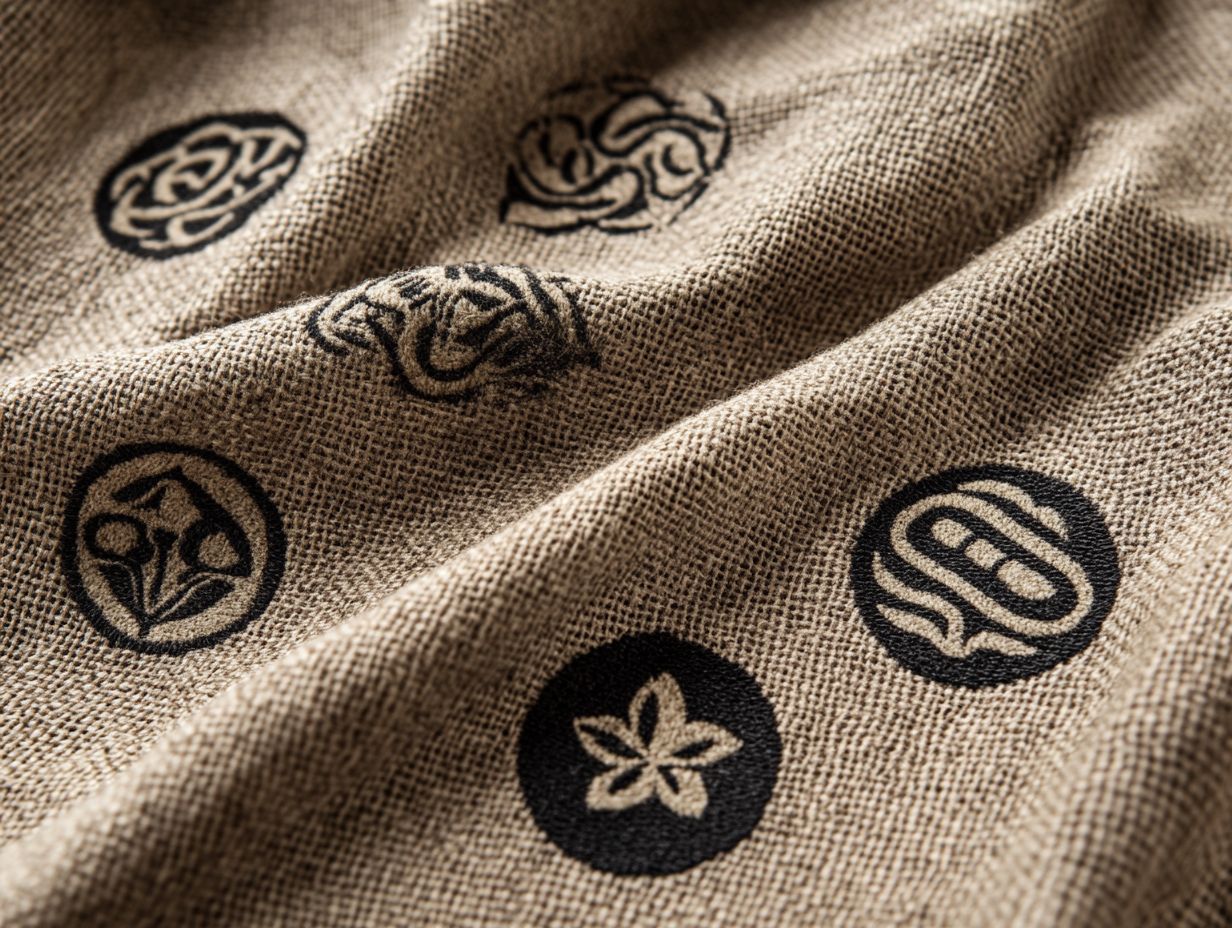
Certification systems often receive criticism due to concerns about misleading marketing about sustainability. Brands may make false claims about their commitment to sustainability, which erodes consumer trust and creates an uneven playing field for companies genuinely striving for eco-friendly practices.
Consider this: some products may display labels suggesting they meet strict environmental standards, yet in reality, they fall far short. This can lead consumers to unknowingly support unsustainable practices. The implications extend beyond marketing errors, significantly impacting ethical work environments and labor standards. Companies engaged in misleading marketing often overlook fundamental labor rights, jeopardizing worker well-being.
As industry stakeholders examine the consequences of these misleading claims, the call for transparency in sustainability certifications within the clothing industry is more urgent than ever. Your awareness and advocacy for genuine transparency can drive meaningful change in this space.
How to Identify and Support Certified Sustainable Fashion Brands
Identifying and supporting certified sustainable fashion brands requires a keen understanding of ethical certifications and a commitment to making informed consumer purchasing decisions that prioritize responsible production practices.
By exploring what these certifications entail, such as fair labor practices and sustainable materials, you empower yourself to choose brands that align with your values. This fosters a more sustainable and ethical fashion landscape.
Tips for Consumers and Businesses
Consumers and businesses can adopt various strategies to support certified sustainable fashion, ultimately influencing the industry toward more ethical practices and sustainable materials.
Prioritize purchases from brands that are independently verified as sustainable, such as those certified by the Global Organic Textile Standard or Fair Trade. This shift promotes greater transparency and responsibility in fashion. Research certifications like GOTS, Bluesign , or Better Cotton to make informed choices that reflect your values.
Businesses can enhance credibility through certification or partnerships with established sustainable entities. Engaging in community events, sharing knowledge about the benefits of sustainable textiles, and encouraging consumer feedback are excellent ways to cultivate a culture of sustainability.
These actions promote responsible consumption and propel the industry toward a sustainable future, supporting environmental stewardship and circular economy principles.
Frequently Asked Questions
What are sustainable fashion certifications?
Sustainable fashion certifications are third-party endorsements that verify a brand’s commitment to ethical work environments and environmentally friendly practices in the fashion industry. These certifications are awarded to brands meeting specific standards and criteria set by the certifying body.
Why are sustainable fashion certifications important?
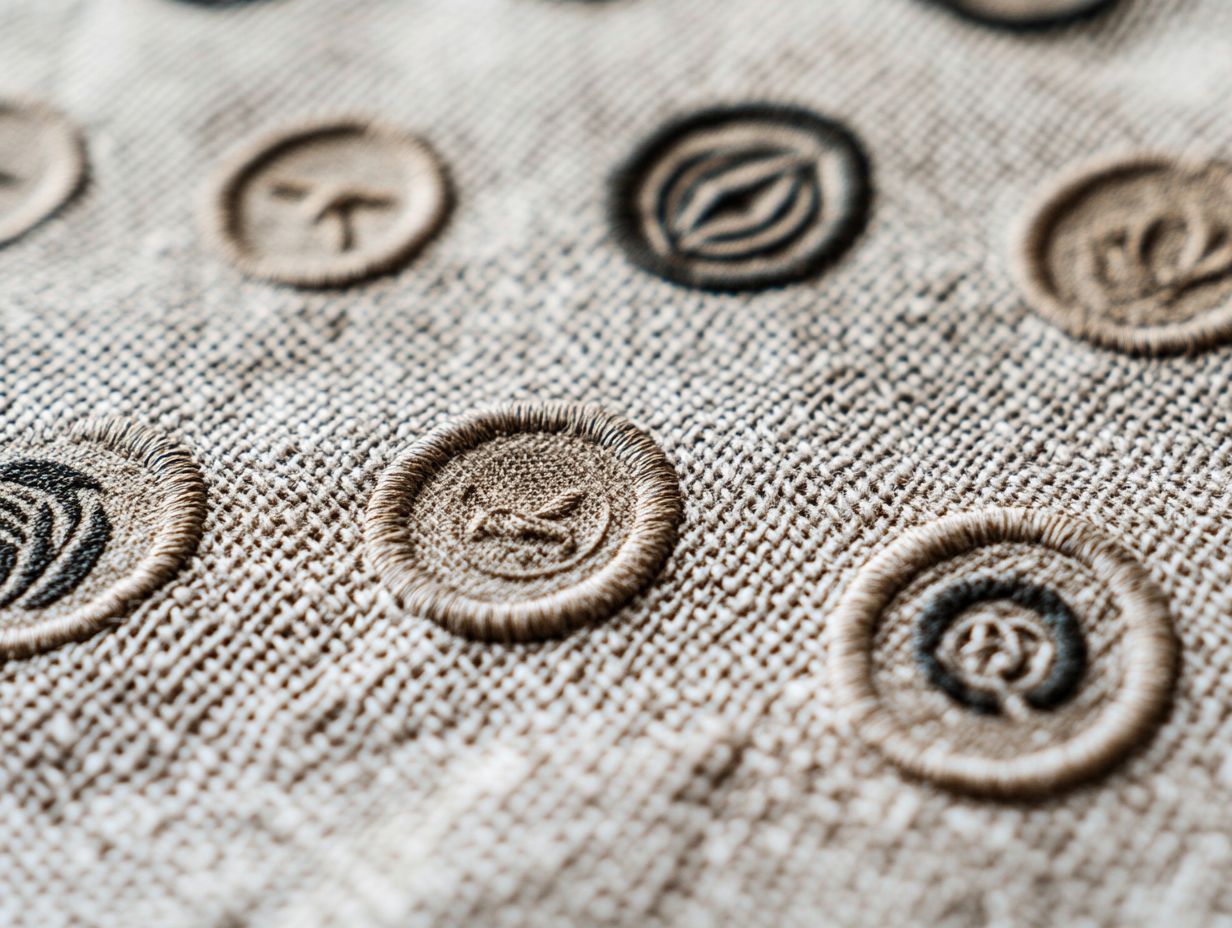
Sustainable fashion certifications are crucial as they offer consumers a way to identify and support truly sustainable brands, enhancing supply chain transparency. They hold brands accountable for their claims, ensuring compliance with labor standards and helping drive positive change in the fashion industry.
Are you ready to make a difference with your wardrobe? Support certified brands and share this information with others!
How do brands obtain sustainable fashion certifications?
Brands can obtain sustainable fashion certifications by applying to a certifying body, like the Sustainable Apparel Coalition. They go through a thorough evaluation process, which involves providing evidence of sustainable practices, going through checks, and paying a fee.
This process may also include recycling schemes and compliance with environmental criteria.
What are some examples of sustainable fashion certifications?
Examples of sustainable fashion certifications include the Global Organic Textile Standard (GOTS), Fairtrade Certified Cotton, Cradle To Cradle Certified, and Oeko-Tex. Each certification targets different aspects of sustainability, like organic fibers, fair labor practices, and eco-intelligent design.
Can a brand have more than one sustainable fashion certification?
Yes, a brand can hold multiple sustainable fashion certifications, including those from Social Accountability International and the World Fair Trade Organization. Many brands are eager to showcase their commitment to various sustainability aspects and appeal to diverse consumer preferences.
Are sustainable fashion certifications only for clothing brands?
No, these certifications are not just for clothing brands. They can also be obtained by accessories, home goods, and other fashion-related products.
Any brand meeting the criteria for specific certifications, like those from the Fashion Revolution or the Fair Wear Foundation, can apply and earn them.
